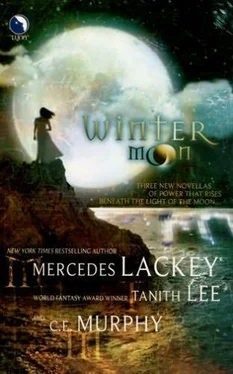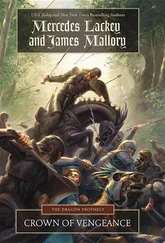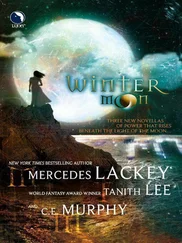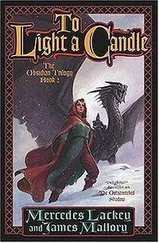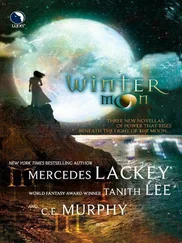This was, definitely, one of the worst storms in her memory, especially for one so early.
She sat down on the chest just beneath the window, propped her elbows on the sill with her chin in both hands, and peered through the darkness, looking for the northern beacon that marked the beginning of the Teeth—and frowned.
She should see it clearly from here. No matter how terrible the storm, she should be seeing the beacon! Nothing could blow it out, and never, in all the history of the sea-keep, had anyone failed to light it in darkness or storm and keep it lit. This was not tiny lantern flame to be blown out—it was a great, roaring, oil-fed conflagration, shielded in a large bubble of greenish glass as thick as a thumb and surrounded by polished brass mirrors that reflected all the landward light out to sea.
Then, turning her head a little, she saw it, breathed a sigh of relief—then frowned more deeply.
It wasn’t where it should be. It should be much farther away, along the cliff face. It wasn’t where she remembered, and she had very vivid physical memories of planting both elbows on this windowsill, in little depressions that countless other elbows had worn into the wood, and looking straight out through the center pane to see it. Not through the pane that was left of center.
But I’m older and much taller—
No, that wasn’t the problem. It couldn’t be the problem. Taller would make no difference in where the beacon appeared to be from the view through this window—
But I can’t be sure….
She stared at the warm, yellow light; it was, of course, much dimmer from the land side. The reflectors that sent as much light out to sea as possible saw to that. But the more she stared, and the more she positioned herself within the window frame, the more certain she was that it was not her memory that was at fault here.
But there was a way to be absolutely certain, and as she sucked on her lower lip anxiously, she decided she was going to make that test for herself. Because if something was wrong, she wanted to know, and she wasn’t going to go to her father to try to find out. He had, after all, brought the Prince of Jendara here, and she was certain that it was without the King’s knowledge or permission.
Quietly—in fact, on tiptoe, though she could not have said why she felt the need for stealth—she slipped back to her rooms. Anatha was not there. She was probably still enjoying her own dinner with the rest of the servants, for Moira had made it quite clear that she did not require her maid to dance attendance on her at every waking hour. There was no reason to leave the hall; the banks of hot stones that kept the food warm more than made up for the winds whistling in the rafters and stealing the warmth of the fires up the chimneys. And if she was in particularly good graces with the cook and the housekeeper, Anatha would be invited afterward to the warm room backing onto the baking oven, which the superior servants used as a parlor in winter.
Thank heavens . Anatha’s absence made this much easier—no need to conjure up excuses for going back to the nursery.
She opened her jewelry casket underneath the lamp and found the ring she was looking for. Slipping it onto her middle finger, she stole back down the hall to the nursery, carefully closing the door behind her this time.
She positioned herself at the window with her eyes mere inches from the center pane, and making a fist, rubbed a little scratch in the glass right where the beacon shone through the storm with the diamond in the ring.
There. When the storm broke, she could come back here in daylight and see if the scratch lined up with the beacon. If it did, she had been anxious over nothing.
If it didn’t—
If it didn’t, there was something very, very strange going on at Highclere Sea-Keep. And she would have to find out what it was—and more important, why it was happening.
When Anatha returned to Moira’s rooms, she found her mistress with her feet resting on a stone warmed on the hearth with a fur rug covering her lap, sitting beside the fire, knitting. Knitting was a very plebian pastime, and most ladies didn’t even bother to learn, but Moira found it soothing. It was one of the few tasks that could be done by the uncertain light of a flickering fire and guttering lamps during a storm. And it certainly did no harm to have extra soft, lamb’s-wool hose on hand in a sea-keep winter.
“A wild night, my lady,” was all Anatha said. “The Winter Witch has come early.”
“I thought as much—but I also wondered if my memory had been at fault,” Moira replied. “Well, what are the canny old sailors saying?”
“That—that it isn’t natural, my lady,” Anatha replied, looking over her shoulder first, as if she expected to see someone spying on them from a corner. “The witch has never flown before all the leaves are gone, not in anyone’s memory.”
Once again, Moira felt an odd little sense of warning. “The leaves will certainly not outlast this storm,” she replied, and yawned. “Are they saying this means a bad winter?”
Anatha looked over her shoulder, and this time, she leaned very close to Moira and whispered, “They’re saying, this storm was sent .”
Once again, that touch of warning, that sense as if a single ice-cold fingertip had been touched to the back of her neck. She thought about her father and Prince Massid exchanging cryptic comments and glances full of meaning about the winter storms.
But no one could control the weather. Even the greatest of magicians couldn’t control the weather—the one who could would have a great and terrible weapon at his disposal. Such a magician wouldn’t be content to serve a greater master. He himself would use that power to become a powerful ruler.
Not that Moira had any great acquaintance with magicians. They were few and far between, the genuine ones, anyway. The Countess had her wizard, Lady Amaranth, but she had never performed any magic more powerful than the spell that allowed the Grey Ladies to use pigeon-mail. And Lady Amaranth was supposed to be the most powerful wizard in the kingdom, except for those that served the King.
“How could such a storm be sent?” she replied, keeping her tone light and disbelieving. “And more to the point, why? This is a sea-keep—we are used to such storms. At most, it is an inconvenience. The men-at-arms won’t be able to hunt until it’s over, and we might run a bit short of fresh meat, but the High Table will not suffer. The beacons will have to be tended, and the poor fellows who have to do the tending will spend a miserable time of it. Soon or late, it doesn’t matter when the Winter Witch flies, she’ll have no effect on Highclere. And I hope you aren’t going to tell me that God has sent the storms early for our sins! I shall be quite cross with you.”
Anatha laughed at that. “No, my lady. You’re right, of course. It was all just kitchen talk.”
“Then I count on you to be sensible,” Moira replied, with a nod. “When that sort of talk begins again, make sure you are the one who keeps her head.” She yawned and set aside her work. “And I believe that I will be sensible and go to bed.”
Tucked up in bed, with the curtains closed tightly all around to prevent icy drafts from waking her, Moira did not feel in the least sleepy. She turned on her side to think.
If someone was a powerful magician, and could control the weather, at least in part—he’d use that power to make himself a king. Wouldn’t he?
But what if he already was a king? Or, say, a Khaleem, which was basically the same thing.
Massid had said that the Khaleemate had never lost a ship to storms. Maybe that wasn’t just good luck. Maybe the Khaleems of Jendara had power over the weather.
Читать дальше
Конец ознакомительного отрывка
Купить книгу
